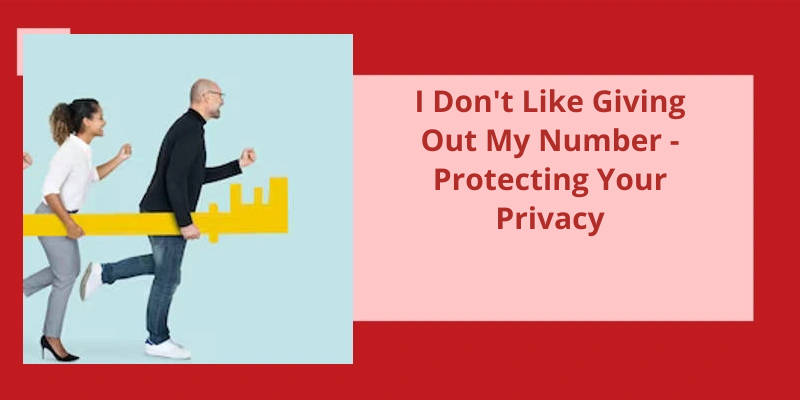When someone says that they favor you, it can be a powerful statement of affection and preference. Favoring someone is a transitive verb that indicates a level of kindness and attention given to a specific person. It can come in many forms, from special treatment and privileges to simply being treated with more care and consideration. It's a gesture that suggests you hold a special place in someone's heart or mind. Is it just a passing sentiment, or does it indicate something more profound? The answer might depend on the person and the context in which it’s said. However, one thing is clear – being favored is a positive and meaningful experience that can deepen your connections with others.
What Is the Original Meaning of Favor?
The word favor has a long history in the English language, dating back to at least the 14th century. Originally, it referred to a sense of goodwill or kind regard towards someone or something. This could be expressed through acts of kindness or generosity, as well as through simple gestures of recognition or respect.
One of these is bias or partiality, which can arise when someone shows a preference for one thing over another, often based on personal feelings or interests. This sense of favor can be seen in many different contexts, from politics and business to personal relationships and social interactions.
It can involve acts of kindness, personal biases, and material rewards, among other things. Understanding the various nuances of favor can be useful in navigating social interactions and relationships, as well as in developing a broader sense of empathy and understanding towards others.
How Has the Meaning of “Favor” Evolved Over Time?
The word “favor” has undergone changes in it’s meaning with the passing of time.
The topic of slang terms and their meanings can be both interesting and intriguing. Among those slang expressions, favor is one of the terms that could have different meanings. In this article, we will delve into the definition of “favors” in a specific context – the US slang meaning and it’s connotation in everyday usage.
What Does Favors Mean Slang?
The term “favors” in slang language is often used to refer to sexual intimacy or acts that are consented to by a woman. This term is commonly used in the United States as a way to describe sexual interactions between two people. It’s important to note that using this term to describe sexual interactions can be objectifying and degrading to women. Consent and respect should always be the foundation of any sexual encounter.
This type of exchange is widely known as prostitution and is illegal in many parts of the world. It’s important to understand that participating in this type of activity can have serious legal and health consequences.
It’s important to educate ourselves and others about the importance of consent, respect, and healthy sexual relationships.
It’s also important to note that the use of slang terms to describe sexual acts or interactions can vary widely across different communities and cultures. It’s important to be aware of the language we use and the messages we’re sending when talking about sex and sexuality.
When someone does a favor for us, it means they’ve granted us a special privilege or right that we may not have been entitled to otherwise. This act of kindness can truly make a difference in our lives, providing us with a sense of appreciation and gratitude towards others. It’s important to recognize the impact of favors and to show our own appreciation when someone does something special for us. With that in mind, let’s explore the different ways in which favors can be given and received, and the importance of acknowledging these acts of kindness.
What Is a Favour From Someone?
When someone does a favor for us, they’re doing something special for us. It could be something as small as helping us carry our groceries or something as big as lending us money when were in a tough spot. When someone offers us a favor, it’s a sign that they care about us and are willing to go out of their way to help us.
Sometimes, it can be difficult to ask for a favor. We may feel as though we’re imposing on someone or that we don’t want to burden them with our problems. In fact, it takes strength to reach out and ask for help when we need it.
When we receive a favor from someone, it’s important to pay it forward. We can show our appreciation by doing something kind for someone else. This not only helps to spread kindness and positivity, but it also helps us to feel good about ourselves.
In todays fast-paced world, it can be easy to forget the importance of doing favors for others. We may be so focused on our own lives that we forget to lend a helping hand to those around us. However, doing favors for others is an important part of building strong relationships and fostering a sense of community.
Source: When you do a favor for someone, then you say ‘I did it for …
Having someone’s favor can mean different things depending on the context. It could either mean being supported or benefited by someone, such as in a court case, or being liked and approved of by someone. In both cases, having someone’s favor could have a huge impact on the outcome of a situation, whether it’s a legal battle or a personal relationship. But what does it take to gain someone’s favor, and how do you maintain it? These are some of the questions we’ll explore in the following sections.
What Does It Mean to Have Someone’s Favor?
When someone says that they’ve someones favor, it means that they’ve their support and approval. This can manifest in various ways, such as being favored for a job or receiving favorable treatment in certain situations. Having someones favor can be beneficial in many areas of life, from personal relationships to professional endeavors. It’s a powerful force that can greatly influence our circumstances and outcomes.
It’s common for people to seek the favor of those in authority or those who hold a certain status. This can be seen in various cultures throughout history, where individuals would go to great lengths to win the favor of kings, queens, and other important figures. In modern times, we see this phenomenon playing out in the workplace, where employees strive to impress and gain the favor of their bosses.
It requires trust, respect, and a willingness to support and champion others. It isn’t something that can be bought or coerced, but rather earned through hard work and dedication. When we’ve someones favor, we’ve a valuable asset that can open doors and bring us closer to achieving our goals. However, it’s important to remember that favor isn’t a guarantee of success, and that we must continue to work hard and prove ourselves deserving of the support and approval of others.
In many aspects of life, whether in the workplace or social circles, it’s not uncommon to see favoritism at play. This can manifest in various forms of partiality, from giving preferential treatment to those we know to being biased towards a particular group. However, there are specific terms to describe these actions, such as favoritism and nepotism. Let’s explore these terms in more detail.
What Is the Word for Favoring Someone You Know?
Nepotism is a particular type of favoritism that’s often criticized, as it involves granting preferential treatment to family members, regardless of their qualifications or abilities. This can lead to a lack of diversity in an organization, as well as a sense of unfairness among those who aren’t part of the privileged group. However, it’s important to note that some forms of nepotism may be less harmful than others, such as when a family member is hired based on their merits and qualifications.
Another word for favoritism is cronyism, which refers to the practice of granting favors or awards to friends or associates. This often occurs in political or business settings, where individuals may use their connections to gain an unfair advantage or advance their own interests. Like nepotism, cronyism can create a sense of distrust and resentment among those who aren’t part of the favored group.
Preferential treatment is also a term that can be used to describe favoritism, and it can refer to any situation in which certain individuals are given special treatment or privileges based on their connections or status. This can occur in a variety of contexts, from academic admissions to employment opportunities. While some forms of preferential treatment may be justified, such as affirmative action programs designed to promote diversity, others may be seen as unfair and discriminatory.
Regardless of the specific term used, favoritism in all it’s forms can have negative consequences for individuals and organizations. It can erode trust, create a sense of unfairness, and limit opportunities for those who aren’t part of the favored group. As such, it’s important for individuals and organizations to be aware of the potential for favoritism, and to work to create fair and equitable systems that promote diversity and merit-based decision-making.
Conclusion
At the core of human interaction is the desire to be liked and appreciated. It could be your personality, your values, your sense of humor, or your unique perspective on life. Whatever the reason may be, being favored by someone can make you feel validated and valued. It’s important, however, to approach these situations with caution, ensuring that favoritism doesn’t lead to discrimination or unfair treatment. At the end of the day, building positive relationships with others is a key element in leading a fulfilling and happy life.





